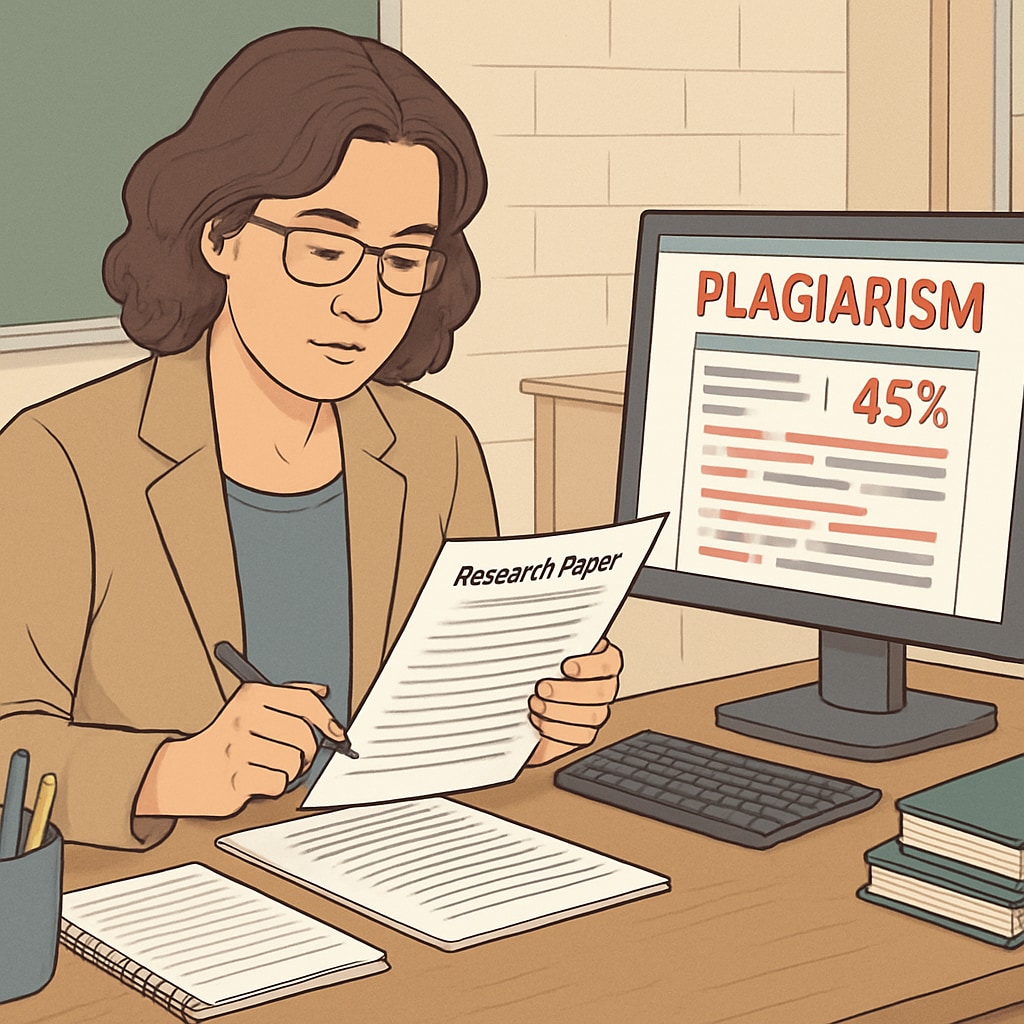In recent years, instances of false academic misconduct allegations have cast a shadow over the relationship between educators and students. When professors or teachers accuse students of plagiarism or other academic violations without sufficient evidence, the repercussions can be profound. These accusations not only challenge the principle of academic integrity but also have lasting psychological effects on young learners in the K-12 education system. This article delves into the impact of such allegations, the importance of fostering trust in the classroom, and actionable steps to build a fair and transparent academic evaluation system.
The Psychological Toll of False Academic Accusations
Accusing a student of academic misconduct, such as plagiarism, can be a serious matter. However, when these accusations are unfounded, their impact on a student’s mental health can be devastating. For young learners, who are still developing their identity and confidence, being labeled as dishonest can lead to feelings of shame, anxiety, and even depression. In some extreme cases, students may become disengaged from learning altogether, perceiving the educational environment as hostile or unfair.
For example, consider a scenario where a teacher accuses a student of copying a research paper without investigating whether the student had referenced their sources correctly. This misunderstanding could lead to unnecessary disciplinary actions, damaging the student’s reputation and undermining their trust in the education system. Experts agree that the effects of such incidents can persist into adulthood, affecting students’ willingness to take intellectual risks or express original ideas.
Learn more about psychological impacts on Britannica.

Why Transparency and Fairness are Essential in Academic Evaluations
To prevent false accusations, educators must adopt a transparent and consistent approach to academic evaluations. A robust system ensures that accusations of misconduct are based on clear evidence rather than assumptions or biases. Key elements of such a system include:
- Defined Criteria: Teachers should clearly outline what constitutes academic misconduct and provide examples to help students understand acceptable practices.
- Collaborative Communication: Accusations should be discussed with students before any formal action is taken. This allows educators to understand the student’s perspective and gather context.
- Use of Technology: Tools like plagiarism detection software should be used judiciously, as they are not infallible. Results should always be reviewed by educators to avoid misinterpretations.
By implementing these measures, schools can create a culture where students feel supported rather than scrutinized. Transparency not only protects students but also reinforces the credibility of the educational institution.

Building Trust Between Educators and Students
Trust is the cornerstone of any effective educational relationship. When students feel respected and understood, they are more likely to value academic integrity and adhere to its principles. Conversely, a lack of trust can breed resentment and disengagement.
To cultivate trust, educators should prioritize:
- Open Dialogue: Encourage students to ask questions about academic integrity and seek clarification on assignments.
- Empathy in Disciplinary Actions: When addressing potential misconduct, approach the situation as a learning opportunity rather than a punitive measure.
- Professional Development: Provide teachers with training on handling academic misconduct cases fairly and effectively.
Additionally, schools can host workshops or seminars on academic integrity to engage both students and educators in meaningful discussions. Such initiatives not only raise awareness but also strengthen the sense of community within the institution.
Explore more about academic integrity on Wikipedia.
Conclusion: Towards a Fair and Supportive Educational System
False academic misconduct allegations can erode the very foundation of trust and respect that education seeks to build. By adopting transparent policies, fostering open communication, and prioritizing empathy, educators can protect both the academic integrity and the dignity of their students. The ultimate goal should be to create an environment where students feel safe to learn, grow, and make mistakes without fear of unwarranted accusations.
In the words of renowned educator John Dewey, “Education is not preparation for life; education is life itself.” Let us ensure that this life is one of fairness, respect, and mutual understanding.


